As Saudi Arabia continues to diversify its energy sources and invest in renewable energy, the demand for solar panels has been steadily increasing. Solar energy plays a crucial role in the country’s Vision 2030 initiative, aiming to reduce dependence on oil and increase the contribution of renewable energy to the national grid. Importing solar panels from China has become a popular choice due to the combination of cost-effectiveness, high-quality products, and reliable manufacturing standards. This article will guide you through the process of importing and shipping solar panels from China to Saudi Arabia, helping you navigate the complexities and take advantage of the opportunities in this growing market.
Related Article: Shipping from China to Saudi Arabia
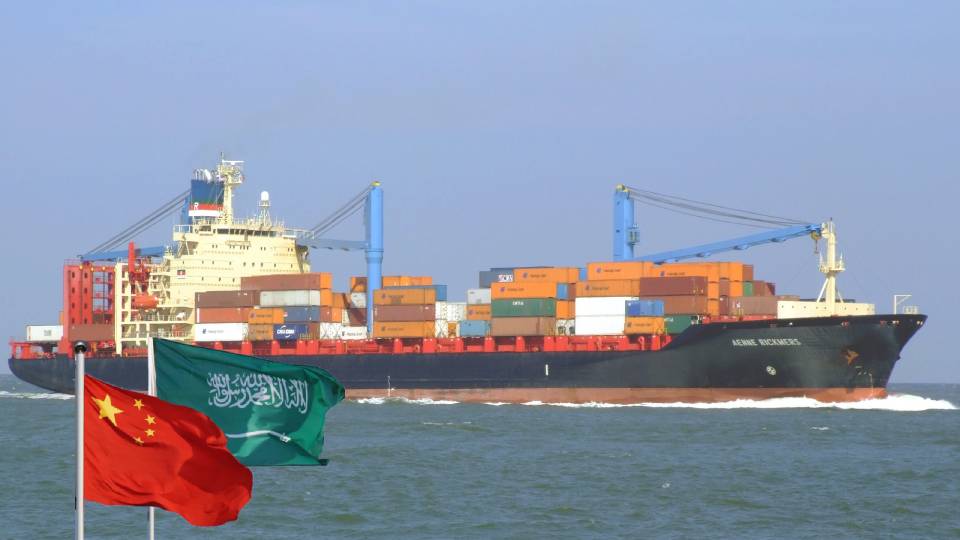
Reasons to Import Solar Panels from China
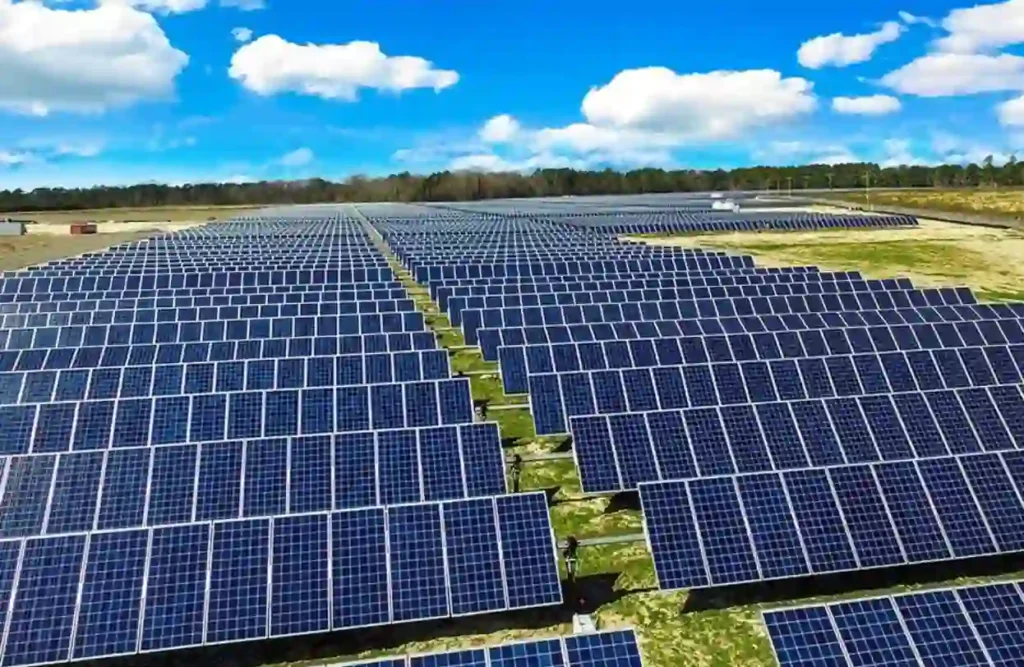
Cost-Effectiveness of Chinese Solar Panels
China is known for its competitive pricing in the global market. The cost of manufacturing solar panels in China is significantly lower due to economies of scale, advanced production techniques, and cheaper labor costs. This makes importing solar panels from China an economically viable option for businesses and individuals in Saudi Arabia looking to invest in renewable energy.
High-Quality Manufacturing Standards
Chinese manufacturers have made significant advancements in the quality of their solar panels. Many Chinese companies adhere to international standards and certifications, ensuring that their products meet global quality requirements. This means that when you import solar panels from China, you can be assured of their durability, efficiency, and performance.
Variety and Availability of Solar Panels
China is home to a vast number of manufacturers producing a wide range of solar panels to suit different needs and applications. Whether you require monocrystalline, polycrystalline, or thin-film solar panels, you will find a diverse selection available from Chinese suppliers. This variety allows you to choose the most suitable type of solar panel for your specific requirements.
Government Incentives and Policies
The Chinese government has implemented various incentives and policies to support the solar industry, both domestically and internationally. These initiatives include subsidies, tax benefits, and support for research and development. As a result, Chinese manufacturers can offer competitive prices and high-quality products, making them an attractive option for importers in Saudi Arabia.
Key Considerations Before Importing
Regulatory Compliance and Certifications
Before importing solar panels from China, it is essential to ensure that the products comply with both Chinese and Saudi Arabian regulations. This includes checking for necessary certifications such as CE, IEC, and TUV, which demonstrate that the solar panels meet international safety and quality standards. Ensuring regulatory compliance helps avoid potential legal issues and ensures the smooth importation of the products.
Quality Assurance and Product Testing
Quality assurance is a critical aspect of importing solar panels. It is advisable to conduct thorough product testing and verification before making a purchase. This can involve requesting samples, visiting manufacturing facilities, or employing third-party inspection services. Ensuring the quality of the solar panels helps prevent future problems and guarantees the reliability of the products.
Supplier Verification
Verifying the credibility and reliability of the supplier is crucial when importing solar panels from China. Conduct background checks, read reviews, and ask for references to ensure that the supplier has a good reputation and can deliver on their promises. Establishing a trustworthy relationship with the supplier can lead to a smoother and more successful import process.
Bulk Purchase Agreements and MOQ (Minimum Order Quantity)
When importing solar panels, it is essential to understand the terms of bulk purchase agreements and the minimum order quantity (MOQ) set by the supplier. Negotiating favorable terms and understanding the MOQ can help you manage costs and ensure that you are getting the best deal possible. Additionally, bulk purchases can often lead to discounts and reduced shipping costs, making the overall import process more cost-effective.
Shipping Process from China to Saudi Arabia
Step-by-Step Guide to the Shipping Process
Shipping solar panels from China to Saudi Arabia involves several important steps. Understanding each step can help ensure a smooth and efficient shipping process:
- Initial Consultation and Quotation: Begin by consulting with your chosen logistics provider, such as Dantful International Logistics. Provide details of your shipment, including type, quantity, and dimensions of the solar panels. The provider will offer a quotation based on these details.
- Documentation Preparation: Prepare all necessary documentation, including the commercial invoice, packing list, bill of lading, and certificates of origin. These documents are essential for customs clearance in both China and Saudi Arabia.
- Booking and Scheduling: Once you have agreed on the shipping terms and costs, book and schedule the shipment with your logistics provider. This includes selecting the shipping method (e.g., Ocean Freight or Air Freight) and arranging for container loading if applicable.
- Cargo Pickup and Transportation to Port: The logistics provider will arrange for the pickup of the solar panels from the supplier’s warehouse and transport them to the port of departure. This step involves local transportation within China.
- Export Customs Clearance in China: The logistics provider will handle the export customs clearance process, ensuring that all documentation is in order and that the shipment complies with Chinese export regulations.
- Freight Transportation: The solar panels will then be transported from China to Saudi Arabia via the chosen shipping method. This step includes ocean or air transit and can take several days to weeks, depending on the method selected.
- Import Customs Clearance in Saudi Arabia: Upon arrival in Saudi Arabia, the shipment will undergo import customs clearance. The logistics provider will ensure that all required documents are presented, duties and taxes are paid, and the shipment complies with Saudi Arabian regulations.
- Delivery to Final Destination: Once cleared by customs, the logistics provider will arrange for the transportation of the solar panels to the final destination, whether it be a warehouse, project site, or another location within Saudi Arabia.
Documentation and Paperwork Required
Proper documentation is crucial for a smooth shipping process. Essential documents include:
- Commercial Invoice: A detailed list of the goods being shipped, including the value and terms of sale.
- Packing List: An itemized list of the contents of each package.
- Bill of Lading: A receipt and contract between the shipper and carrier detailing the shipment.
- Certificates of Origin: Documents certifying the country where the goods were manufactured.
- Import Licenses and Permits: Specific to Saudi Arabia, ensuring compliance with local regulations.
Role of Freight Forwarders in the Shipping Process
Freight forwarders, such as Dantful International Logistics, play a crucial role in the shipping process. They manage logistics, handle documentation, ensure regulatory compliance, and coordinate with carriers and customs authorities. Their expertise and resources help streamline the shipping process and mitigate potential issues.
Shipping Methods
Ocean Freight vs. Air Freight: Pros and Cons
Choosing the right shipping method depends on factors such as cost, urgency, and shipment size. Here’s a comparison of ocean freight and air freight:
| Factor | Ocean Freight | Air Freight |
|---|---|---|
| Cost | Generally more cost-effective for large and heavy shipments. | Higher cost, suitable for smaller, high-value, or urgent shipments. |
| Transit Time | Longer transit times, typically ranging from 2-6 weeks depending on the route. | Faster transit times, typically 3-7 days depending on the route. |
| Capacity | Capable of handling large volumes and heavy cargo. | Limited by aircraft capacity and size restrictions. |
| Reliability | Weather and port congestion can affect schedules; requires careful planning. | More reliable schedules, but subject to air traffic and security regulations. |
| Environmental Impact | Lower environmental impact per unit due to higher cargo capacity. | Higher carbon footprint due to fuel consumption per unit of cargo. |
LCL (Less than Container Load) vs. FCL (Full Container Load)
When opting for ocean freight, you can choose between LCL and FCL shipping methods:
- LCL (Less than Container Load): Suitable for smaller shipments that do not require a full container. Multiple shipments are consolidated into one container, sharing space and cost. Ideal for businesses with lower volume imports.
- FCL (Full Container Load): Suitable for larger shipments that require an entire container. Provides exclusive use of the container, reducing the risk of damage and contamination. More cost-effective for high-volume shipments.
Door-to-Door Shipping Services
Door-to-door shipping services provide a seamless experience by handling the entire shipping process from the supplier’s location in China to the final destination in Saudi Arabia. This includes pickup, transportation, customs clearance, and delivery. It simplifies logistics and ensures a hassle-free experience for the importer.
Shipping From China to Middle East Countries:
- Shipping from China to Saudi Arabia
- Shipping from China to UAE
- Shipping from china to KUWAIT
- Shipping From China To EGYPT
- Shipping from China to Bahrain
- Shipping From China To Jordan
- Shipping From China To Israel
- Shipping from China to Qatar
- Shipping From China To IRAQ
- Shipping from China to Iran
Shipping Cost
Factors Affecting Shipping Costs
Several factors influence the cost of shipping solar panels from China to Saudi Arabia:
- Shipping Method: Ocean freight is generally cheaper than air freight, especially for large or heavy shipments.
- Distance and Route: The distance between the port of departure and the destination port affects the cost. Direct routes are typically less expensive than routes with multiple stops.
- Weight and Volume: Heavier and larger shipments cost more to transport. Accurate measurement and weight calculation are essential for cost estimation.
- Seasonality: Shipping costs can fluctuate based on seasonal demand. Peak seasons, such as holidays, can result in higher shipping rates.
- Fuel Surcharges: Fluctuations in fuel prices can impact shipping costs, as carriers often apply fuel surcharges.
Cost Comparison Between Different Shipping Methods
Here’s a cost comparison between ocean freight and air freight for shipping solar panels:
| Shipping Method | Approximate Cost (per cubic meter) |
|---|---|
| Ocean Freight | $50 – $100 |
| Air Freight | $500 – $1000 |
Tips to Reduce Shipping Costs
- Consolidate Shipments: Combine multiple shipments into one to benefit from bulk rates.
- Negotiate Rates: Work with your logistics provider to negotiate better rates based on volume and frequency of shipments.
- Plan Ahead: Book shipments well in advance to avoid peak season surcharges and secure better rates.
- Choose the Right Shipping Method: Evaluate the cost-benefit of different shipping methods based on your specific needs.
By understanding the shipping process, choosing the right shipping methods, and managing costs, you can ensure a successful and cost-effective importation of solar panels from China to Saudi Arabia.
Shipping Time
Average Shipping Time for Different Methods
Shipping time is a critical factor in planning your importation of solar panels from China to Saudi Arabia. The method of transportation you choose will significantly impact the overall transit time. Here are the average shipping times for different methods:
- Ocean Freight: Ocean freight is a common choice for shipping large quantities of solar panels due to its cost-effectiveness. The average shipping time for ocean freight from China to Saudi Arabia typically ranges from 20 to 45 days, depending on the specific ports of departure and arrival. This method includes loading and unloading times, and potential delays at sea or in port due to weather or congestion.
- Air Freight: Air freight is much faster than ocean freight and is suitable for urgent shipments or smaller quantities of high-value goods. The average shipping time for air freight from China to Saudi Arabia ranges from 3 to 7 days. While more expensive, air freight minimizes transit time but may still involve additional time for customs clearance and handling.
Factors Influencing Shipping Time
Several factors can influence the shipping time for solar panels from China to Saudi Arabia:
- Route and Distance: The specific route and distance between the port of departure in China and the port of arrival in Saudi Arabia play a significant role. Direct routes tend to be faster, while routes with multiple stops can extend transit time.
- Customs Clearance: Both export customs in China and import customs in Saudi Arabia can impact overall shipping time. Delays in clearance procedures, documentation issues, or inspections can add extra days to the process.
- Weather Conditions: Adverse weather conditions at sea or in the air can cause delays. Storms, high seas, or fog can affect ocean freight schedules, while severe weather can ground flights.
- Port Congestion: Congestion at major ports can lead to delays in loading and unloading cargo. Busy ports like Shanghai or Jeddah may experience higher volumes of traffic, affecting shipping schedules.
- Carrier Schedules: The frequency of departures and the scheduling of shipping lines or airlines also influence shipping time. Some carriers may have more frequent services, reducing waiting times for the next available shipment.
Tips to Expedite the Shipping Process
To minimize shipping time and ensure timely delivery of your solar panels, consider the following tips:
- Plan Ahead: Start the shipping process well in advance to account for potential delays. Early planning allows more flexibility in scheduling and selecting the best shipping options.
- Choose Reliable Carriers: Work with reputable logistics providers and carriers known for their reliable schedules and efficient handling processes. Dantful International Logistics offers expertise and reliable services to ensure timely delivery.
- Ensure Complete Documentation: Accurate and complete documentation can expedite customs clearance procedures, reducing delays. Double-check all paperwork before shipping to avoid issues.
- Monitor Weather and Port Conditions: Stay informed about weather forecasts and port conditions that may affect shipping schedules. Adjust your plans accordingly to avoid potential delays.
Customs Clearance Process
Customs Regulations in Saudi Arabia
Customs clearance is a critical step in the importation process. Saudi Arabia has specific regulations and requirements that importers must adhere to ensure smooth entry of goods. Key regulations include:
- Import Licenses: Certain goods may require import licenses. Verify if solar panels fall under this category and obtain the necessary permits.
- Certificates of Conformity: Solar panels must meet Saudi standards and certifications, such as the Saudi Standards, Metrology and Quality Organization (SASO) standards. Obtain certificates of conformity from recognized bodies.
- Duties and Taxes: Import duties and taxes are applicable to solar panels. Calculate the estimated costs and ensure timely payment to avoid delays.
Required Documentation for Customs Clearance
Accurate and complete documentation is essential for a smooth customs clearance process. Key documents required include:
- Commercial Invoice: Details the value, description, and terms of the sale of the solar panels. It should match the information on other documents.
- Packing List: Provides a detailed list of the contents of each package, including quantities, weights, and dimensions.
- Bill of Lading: Acts as a receipt and contract between the shipper and carrier. It includes details about the shipment, such as origin, destination, and consignee information.
- Certificate of Origin: Verifies the country of manufacture of the solar panels. This document may be required to comply with trade agreements and preferential duty rates.
- Import Licenses and Permits: If applicable, include any import licenses or permits required by Saudi customs.
- Certificates of Conformity: Demonstrates that the solar panels meet Saudi standards and regulations.
Common Challenges and How to Overcome Them
Navigating the customs clearance process can present challenges. Here are common issues and strategies to overcome them:
- Documentation Errors: Incomplete or inaccurate documentation can lead to delays. Double-check all documents for consistency and accuracy before submission. Consider working with Dantful International Logistics, which offers comprehensive customs clearance services to ensure all paperwork is in order.
- Regulatory Changes: Customs regulations can change, impacting documentation and compliance requirements. Stay informed about current regulations and work with experienced logistics providers who are up-to-date with the latest changes.
- Duty and Tax Calculations: Miscalculations of duties and taxes can result in unexpected costs and delays. Use accurate valuation methods and consult with customs experts to ensure proper calculations.
- Inspection Delays: Shipments may be subject to random inspections, causing delays. Ensure that all documentation is complete, and the cargo is properly labeled and packed to facilitate a smooth inspection process.
By understanding the shipping time factors and mastering the customs clearance process, you can ensure a more efficient and successful importation of solar panels from China to Saudi Arabia. Working with experienced logistics providers like Dantful International Logistics can further streamline the process, ensuring that your shipment arrives on time and in compliance with all regulations.
Choosing the Right Logistics Partner
Importance of Reliable Logistics Providers
Selecting a reliable logistics partner is paramount to the successful importation of solar panels from China to Saudi Arabia. A competent logistics provider ensures seamless execution of all logistics processes, from documentation and customs clearance to transportation and final delivery. They mitigate risks, handle complexities, and provide solutions to any issues that might arise during transit. A reliable logistics provider not only guarantees the safe and timely arrival of your shipment but also helps optimize costs and compliance with regulations, thereby enhancing operational efficiency and business profitability.
Criteria for Selecting a Logistics Partner
When choosing a logistics partner, several critical factors should be considered to ensure you are making the right choice:
- Experience and Expertise: The logistics provider should have extensive experience in international shipping, particularly in handling solar panels and navigating the routes between China and Saudi Arabia. Their knowledge and expertise can be invaluable in anticipating and resolving potential issues.
- Comprehensive Services: Opt for a logistics provider that offers a wide range of services, including Ocean Freight, Air Freight, customs clearance, warehousing, and insurance. A full-service provider ensures all your logistical needs are covered under one roof.
- Global Network: A solid global network and a strong local presence in both China and Saudi Arabia are essential for efficient coordination and communication. A logistics partner with a robust network can facilitate smoother operations and quicker resolution of any issues that arise.
- Customer Service and Support: Superior customer service is crucial. The logistics provider should offer clear communication, regular updates, and prompt responses to any inquiries or issues. Good customer service builds trust and ensures you are kept informed throughout the shipping process.
- Competitive Pricing: While cost should not be the sole criterion, it is important to select a logistics provider that offers competitive and transparent pricing. Request detailed quotes and compare services to ensure you are receiving good value for your investment.
Benefits of Using Dantful International Logistics

Dantful International Logistics stands out as a highly professional, cost-effective, and high-quality one-stop international logistics service provider for global traders. Here are the key benefits of choosing Dantful:
- Expertise in Shipping Solar Panels: Dantful has extensive experience in handling solar panel shipments, understanding the specific requirements and challenges involved.
- Comprehensive Service Offering: Dantful provides a full suite of services, including ocean and air freight, customs clearance, warehousing, and insurance, ensuring all your logistical needs are met efficiently.
- Strong Global Network: With a robust network in China, Saudi Arabia, and globally, Dantful ensures smooth coordination and effective communication throughout the shipping process.
- Exceptional Customer Support: Dantful prides itself on offering excellent customer service, providing timely updates and responsive support to keep you informed and address any concerns promptly.
- Competitive and Transparent Pricing: Dantful offers competitive pricing with no hidden costs, ensuring you receive value for your investment in logistics services.
By choosing Dantful International Logistics, you can trust that your shipment of solar panels will be handled with the utmost professionalism and care, ensuring a successful and hassle-free importation process.
Dantful International Logistics Services:
- Dantful Ocean Freight Services
- Air Freight From China
- Amazon FBA Freight Forwarding
- WAREHOUSE Services
- One-Stop Customs Clearance Solution
- Cargo Insurance Services in China
- DDP Shipping Services By Dantful Logistics
- Out of Gauge Cargo Transportation Shipping Services
FAQ
1. What are the main documents required for importing solar panels from China to Saudi Arabia?
The main documents required include:
- Commercial Invoice
- Packing List
- Bill of Lading
- Certificate of Origin
- Import Licenses and Permits (if applicable)
- Certificates of Conformity
For assistance with documentation, consider working with a reliable logistics provider like Dantful International Logistics.
2. How long does it take to ship solar panels from China to Saudi Arabia?
The shipping time varies depending on the method of transportation:
- Ocean Freight: Approximately 20 to 45 days
- Air Freight: Approximately 3 to 7 days
These times may be influenced by factors such as route, customs clearance, weather conditions, and port congestion.
3. What are the main shipping methods for transporting solar panels?
The main shipping methods are:
- Ocean Freight: Cost-effective for large and heavy shipments.
- Air Freight: Faster but more expensive, suitable for urgent or smaller high-value shipments.
4. What are the main factors affecting shipping costs?
Shipping costs are influenced by:
- Shipping Method (ocean or air)
- Distance and Route
- Weight and Volume of the Shipment
- Seasonality and Demand
- Fuel Surcharges
5. Do I need to pay import duties and taxes on solar panels in Saudi Arabia?
Yes, import duties and taxes are applicable. The exact amount depends on the value of the shipment and relevant Saudi Arabian regulations. Consult your logistics provider for detailed calculations and advice.
6. How can I ensure the quality of solar panels before importing?
To ensure quality:
- Verify supplier credentials and reputation
- Request samples and conduct product testing
- Use third-party inspection services
- Obtain necessary certifications such as CE, IEC, and TUV
7. What is the role of a freight forwarder in the shipping process?
A freight forwarder, such as Dantful International Logistics, manages logistics, handles documentation, ensures regulatory compliance, and coordinates with carriers and customs authorities. Their expertise helps streamline the shipping process and mitigate potential issues.
8. Can I track my shipment during transit?
Yes, most logistics providers offer shipment tracking services. Dantful International Logistics provides real-time tracking, allowing you to monitor the progress of your shipment from departure to arrival.
9. What should I do if my shipment is delayed?
If your shipment is delayed, contact your logistics provider immediately for updates and assistance. Delays can be caused by various factors, including weather conditions, customs clearance issues, or port congestion. Dantful International Logistics offers proactive communication and support to help resolve any delays.
By addressing these common questions and providing clear, informative answers, you can help potential importers better understand the process and make informed decisions when importing solar panels from China to Saudi Arabia.
References
For further reading and authoritative sources, consider the following references:
- Saudi Vision 2030: An outline of Saudi Arabia’s ambitious plan to diversify its economy and reduce dependence on oil through investment in renewable energy. Source.
- International Energy Agency (IEA): Reports and data on global solar energy trends and the role of renewable energy in reducing carbon emissions. Source.
- World Trade Organization (WTO): Information on international trade regulations, standards, and compliance requirements for importing goods, including solar panels. Source.
- Saudi Standards, Metrology and Quality Organization (SASO): Details on Saudi Arabia’s standards and certification requirements for imported goods, including solar panels. Source.

Young Chiu is a seasoned logistics expert with over 15 years of experience in international freight forwarding and supply chain management. As CEO of Dantful International Logistics, Young is dedicated to providing valuable insights and practical advice to businesses navigating the complexities of global shipping.

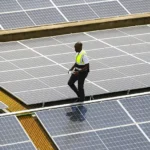
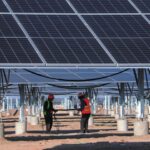


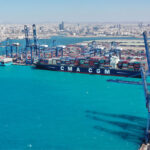



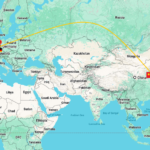



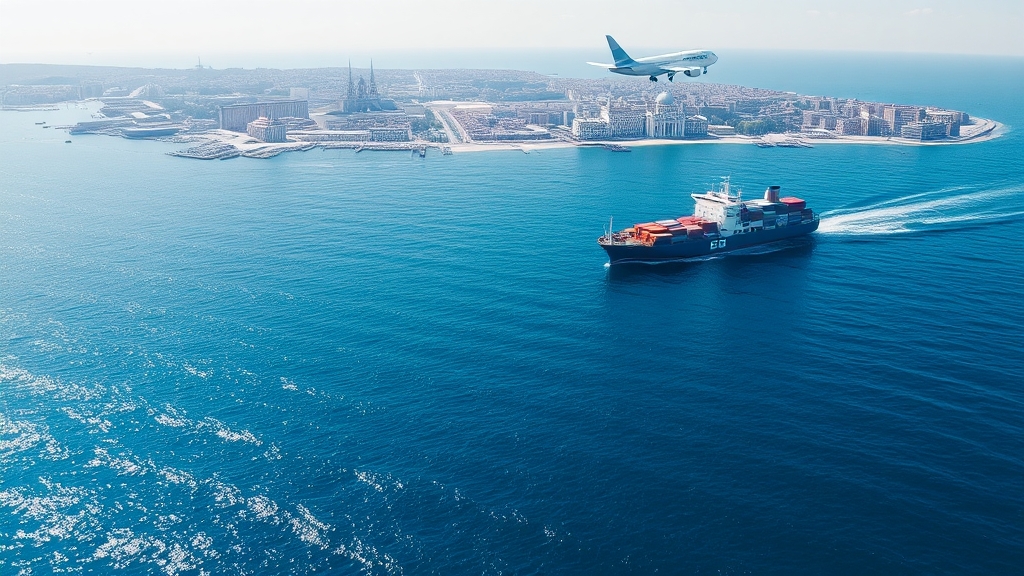
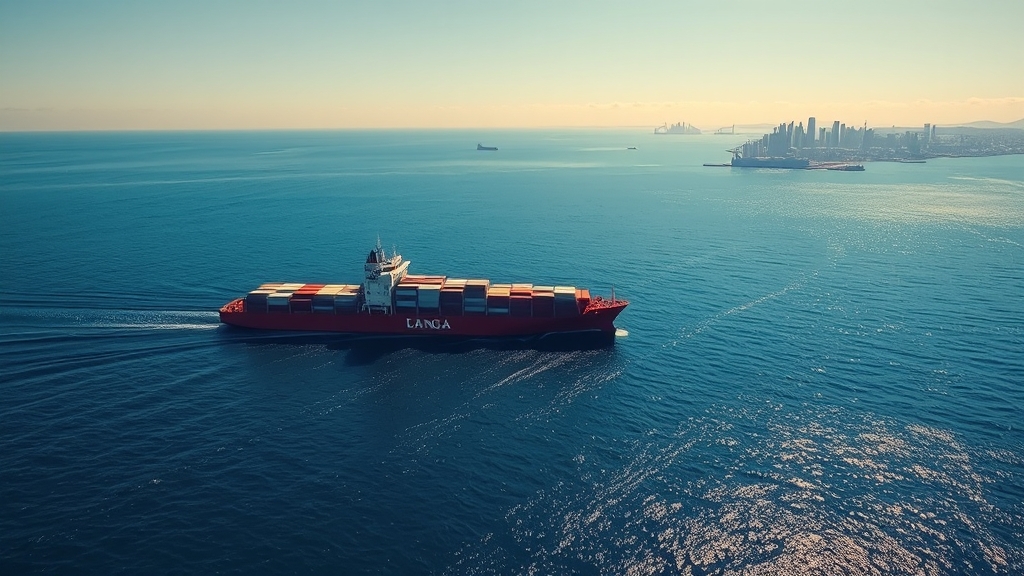





 Afrikaans
Afrikaans Shqip
Shqip አማርኛ
አማርኛ العربية
العربية Հայերեն
Հայերեն Azərbaycan dili
Azərbaycan dili Euskara
Euskara Беларуская мова
Беларуская мова বাংলা
বাংলা Bosanski
Bosanski Български
Български Català
Català Cebuano
Cebuano Chichewa
Chichewa 简体中文
简体中文 繁體中文
繁體中文 Corsu
Corsu Hrvatski
Hrvatski Čeština
Čeština Dansk
Dansk Nederlands
Nederlands English
English Esperanto
Esperanto Eesti
Eesti Filipino
Filipino Suomi
Suomi Français
Français Galego
Galego ქართული
ქართული Deutsch
Deutsch Ελληνικά
Ελληνικά Kreyol ayisyen
Kreyol ayisyen Harshen Hausa
Harshen Hausa Ōlelo Hawaiʻi
Ōlelo Hawaiʻi עִבְרִית
עִבְרִית हिन्दी
हिन्दी Hmong
Hmong Magyar
Magyar Íslenska
Íslenska Igbo
Igbo Bahasa Indonesia
Bahasa Indonesia Gaeilge
Gaeilge Italiano
Italiano 日本語
日本語 Basa Jawa
Basa Jawa ಕನ್ನಡ
ಕನ್ನಡ Қазақ тілі
Қазақ тілі ភាសាខ្មែរ
ភាសាខ្មែរ 한국어
한국어 كوردی
كوردی Кыргызча
Кыргызча ພາສາລາວ
ພາສາລາວ Latin
Latin Latviešu valoda
Latviešu valoda Lietuvių kalba
Lietuvių kalba Lëtzebuergesch
Lëtzebuergesch Македонски јазик
Македонски јазик Malagasy
Malagasy Bahasa Melayu
Bahasa Melayu മലയാളം
മലയാളം Maltese
Maltese Te Reo Māori
Te Reo Māori मराठी
मराठी Монгол
Монгол ဗမာစာ
ဗမာစာ नेपाली
नेपाली Norsk bokmål
Norsk bokmål پښتو
پښتو فارسی
فارسی Polski
Polski Português
Português ਪੰਜਾਬੀ
ਪੰਜਾਬੀ Română
Română Русский
Русский Samoan
Samoan Gàidhlig
Gàidhlig Српски језик
Српски језик Sesotho
Sesotho Shona
Shona سنڌي
سنڌي සිංහල
සිංහල Slovenčina
Slovenčina Slovenščina
Slovenščina Afsoomaali
Afsoomaali Español
Español Basa Sunda
Basa Sunda Kiswahili
Kiswahili Svenska
Svenska Тоҷикӣ
Тоҷикӣ தமிழ்
தமிழ் తెలుగు
తెలుగు ไทย
ไทย Türkçe
Türkçe Українська
Українська اردو
اردو O‘zbekcha
O‘zbekcha Tiếng Việt
Tiếng Việt Cymraeg
Cymraeg יידיש
יידיש Yorùbá
Yorùbá Zulu
Zulu